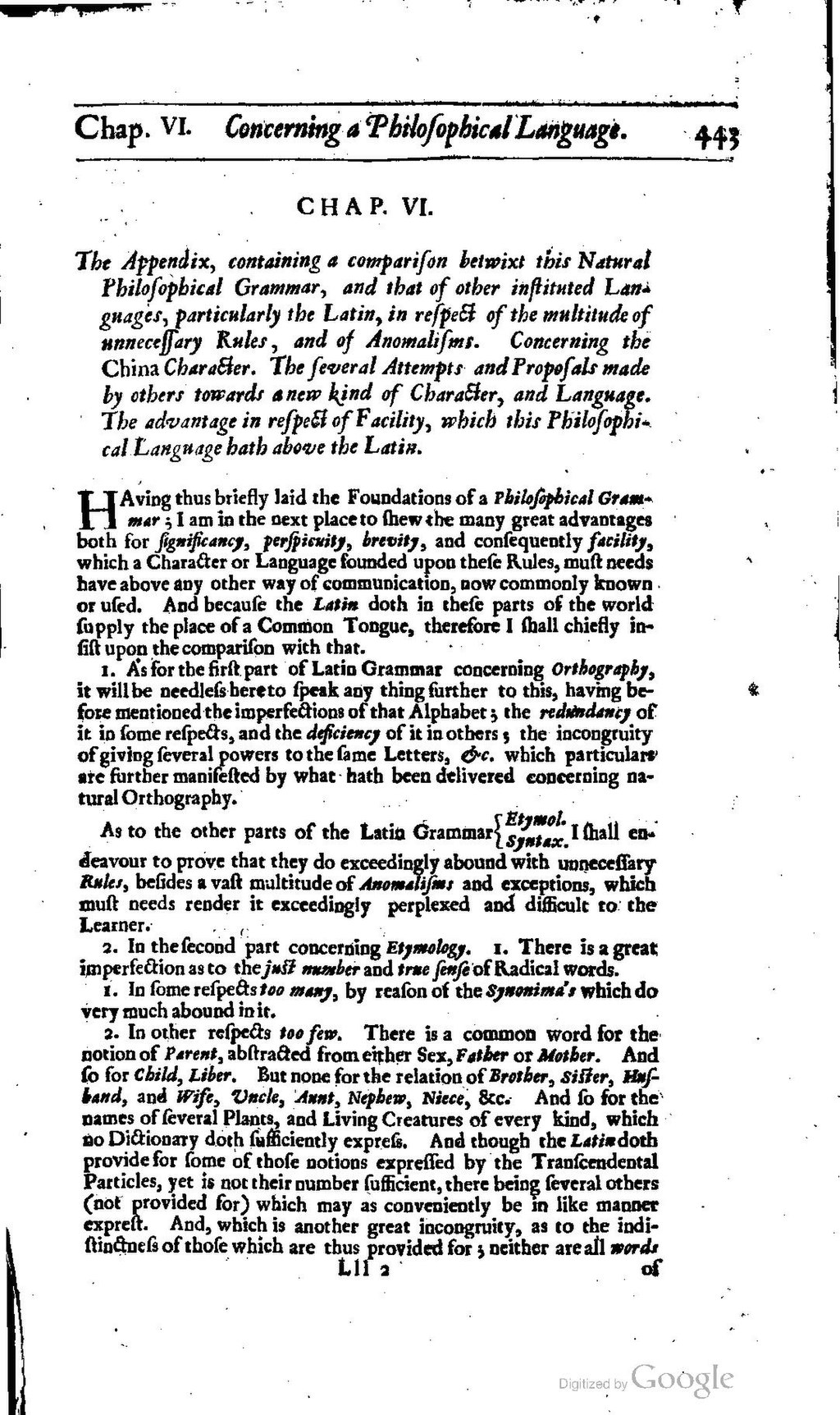CHAP. VI.
HAving thus briefly laid the Foundations of a Philosophical Grammar; I am in the next place to shew the many great advantages both for significancy, perspicuity, brevity, and consequently facility, which a Character or Language founded upon these Rules, must needs have above any other way of communication, now commonly known or used. And because the Latin doth in these parts of the world supply the place of a Common Tongue, therefore I shall chiefly insist upon the comparison with that.
l. Аs for the first part of Latin Grammar concerning Orthography, it will be needless here to speak any thing further to this, having before mentioned the imperfections of that Alphabet; the redundancy of it in some respects, and the deficiency of it in others; the incongruity of giving several powers to the same Letters, &c.. which particulars are further manifested by what hath been delivered concerning natural Orthography. '
As to the other parts of the Latin Grammar Etymol. Syntax. I shall endeavour to prove that they do exceedingly abound with unnecessary Rules, besides a vast multitude of Anomalisms and exceptions, which must needs render it exceedingly perplexed and difficult to the Learner.
2. In the second part concerning Etymology. I. There is a great imperfection as to the just number and true sense of Radical Words.
I. In some respects too many, by reason of the Synonima's which do very much abound in it.
2. In other respects too few. There is a common word for the notion of Parent, abstracted from either Sex, Father or Mother. And so for Child, Liber. But none for the relation of Brother, Sister, Husband, and Wife, Uncle, Aunt, Nephew, Niece, &c. And so for the names of several Plants, and Living Creatures of every kind, which no Dictionary doth sufficiently express. And though the Latin doth provide for some of those notions expressed by the Transcendental Particles, yet is not their number sufficient, there being several others (not provided for) which may as conveniently be in like manner exprest. And, which is another great incongruity, as to the indistinctness of those which are thus provided for; neither are all words
